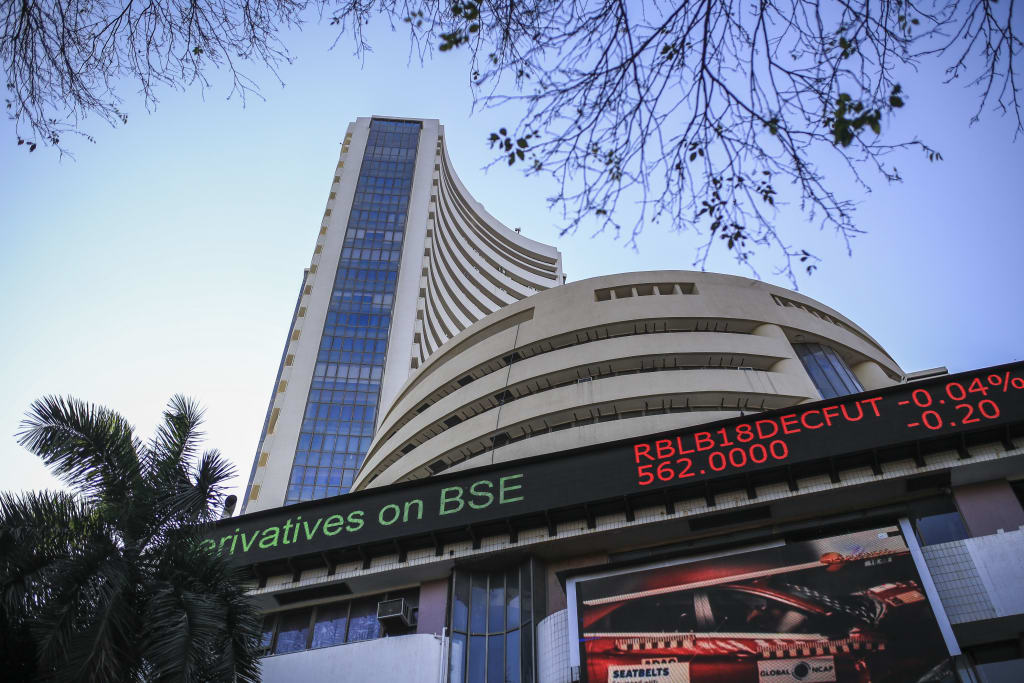Capital Markets And Securities India
Lets know About Indian Market

Capital markets refer to the markets where securities, such as stocks and bonds, are bought and sold. Securities refer to financial instruments that represent an ownership stake in a company or a debt obligation. Capital markets play a crucial role in the economy by providing a platform for companies to raise funds and for investors to invest their money. In India, the capital markets are regulated by the Securities and Exchange Board of India (SEBI).
The Indian capital market is divided into two main segments: the primary market and the secondary market. The primary market is where companies issue new securities to raise capital. This is done through Initial Public Offerings (IPOs) or through private placements. The secondary market is where securities are traded after they have been issued in the primary market. This is done through stock exchanges such as the National Stock Exchange (NSE) and the Bombay Stock Exchange (BSE).
The Indian capital market has undergone significant changes in recent years. One of the key changes has been the introduction of electronic trading. Electronic trading has increased the efficiency and transparency of the market and has reduced the cost of transactions. The Indian capital market has also seen an increase in the number of foreign institutional investors (FIIs) participating in the market. This has led to increased liquidity and greater market depth.
In order to protect the interests of investors and to maintain the integrity of the market, SEBI has introduced several regulations. One of the key regulations is the SEBI (Issue of Capital and Disclosure Requirements) Regulations, 2018. These regulations provide for the disclosure of information by companies issuing securities, as well as the conduct of due diligence by the intermediaries involved in the issue.
Another important regulation is the SEBI (Prohibition of Insider Trading) Regulations, 2015. These regulations prohibit insider trading, which is the buying or selling of securities by individuals who have access to non-public information about the securities. This regulation is intended to prevent insider trading and to ensure fair and equal access to information for all investors.
SEBI also regulates the listing of securities on stock exchanges. The SEBI (Listing Obligations and Disclosure Requirements) Regulations, 2015 provides for the listing of securities and the disclosure of information by listed companies. This regulation is intended to ensure that companies provide accurate and timely information to investors and to maintain the integrity of the market.
In addition to the regulations, SEBI has also introduced several measures to increase the participation of retail investors in the capital market. One such measure is the introduction of the Small and Medium Enterprises (SME) platform on the NSE. The SME platform provides an opportunity for small and medium-sized enterprises to raise capital by listing their securities on the stock exchange.
The Indian capital market has also seen the introduction of various financial products and services. One such product is the exchange-traded fund (ETF). ETFs are a type of investment fund that is traded on a stock exchange. ETFs provide investors with an easy and cost-effective way to invest in a diversified portfolio of securities.
In recent years, there have been several high-profile cases of corporate fraud and mismanagement in India. These cases have brought to light the need for greater corporate governance and transparency. SEBI has introduced several measures to improve corporate governance, including the SEBI (Listing Obligations and Disclosure Requirements) Regulations, 2015 and the SEBI (Prohibition of Insider Trading) Regulations, 2015.
In conclusion, the Indian capital market plays a crucial role in the economy by providing a platform for companies to raise funds and for investors to invest their money. The market is regulated by SEBI and has undergone significant changes in recent years, including the introduction of electronic trading and an increase in the number of foreign institutional investors.
NAVNEET GUPTA
(School Of Law Manav Rachna University)





Comments
There are no comments for this story
Be the first to respond and start the conversation.